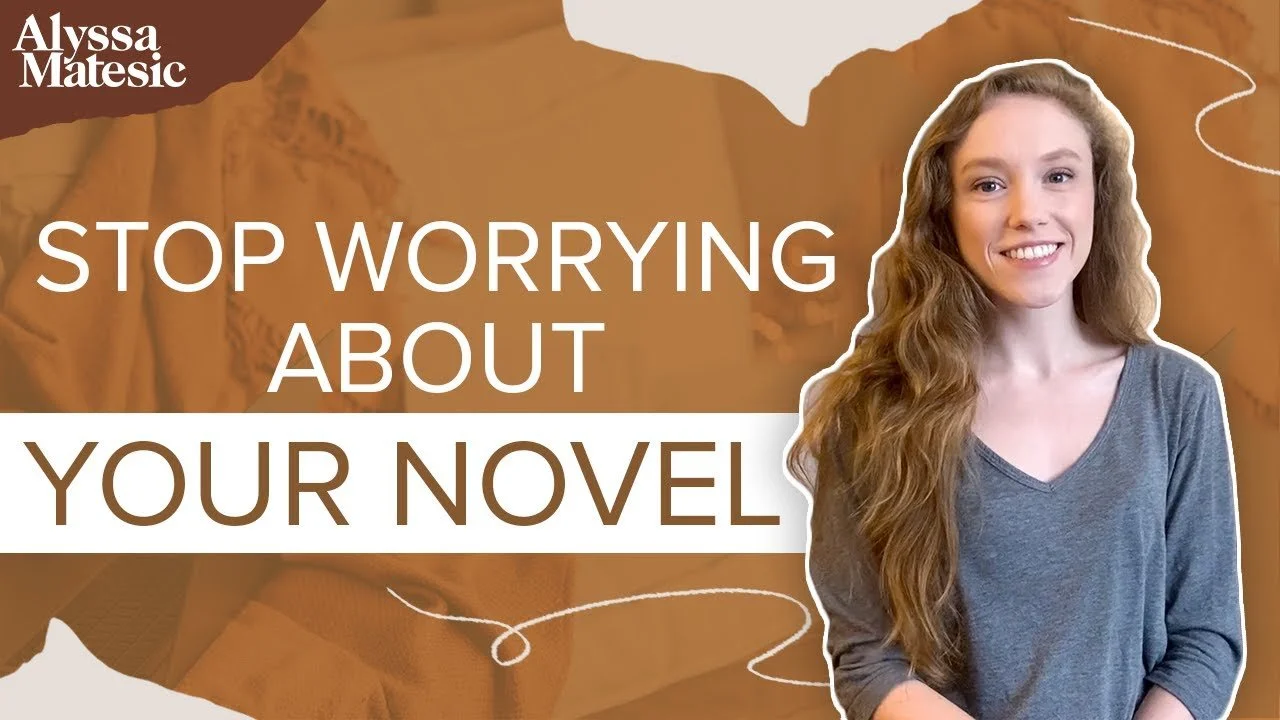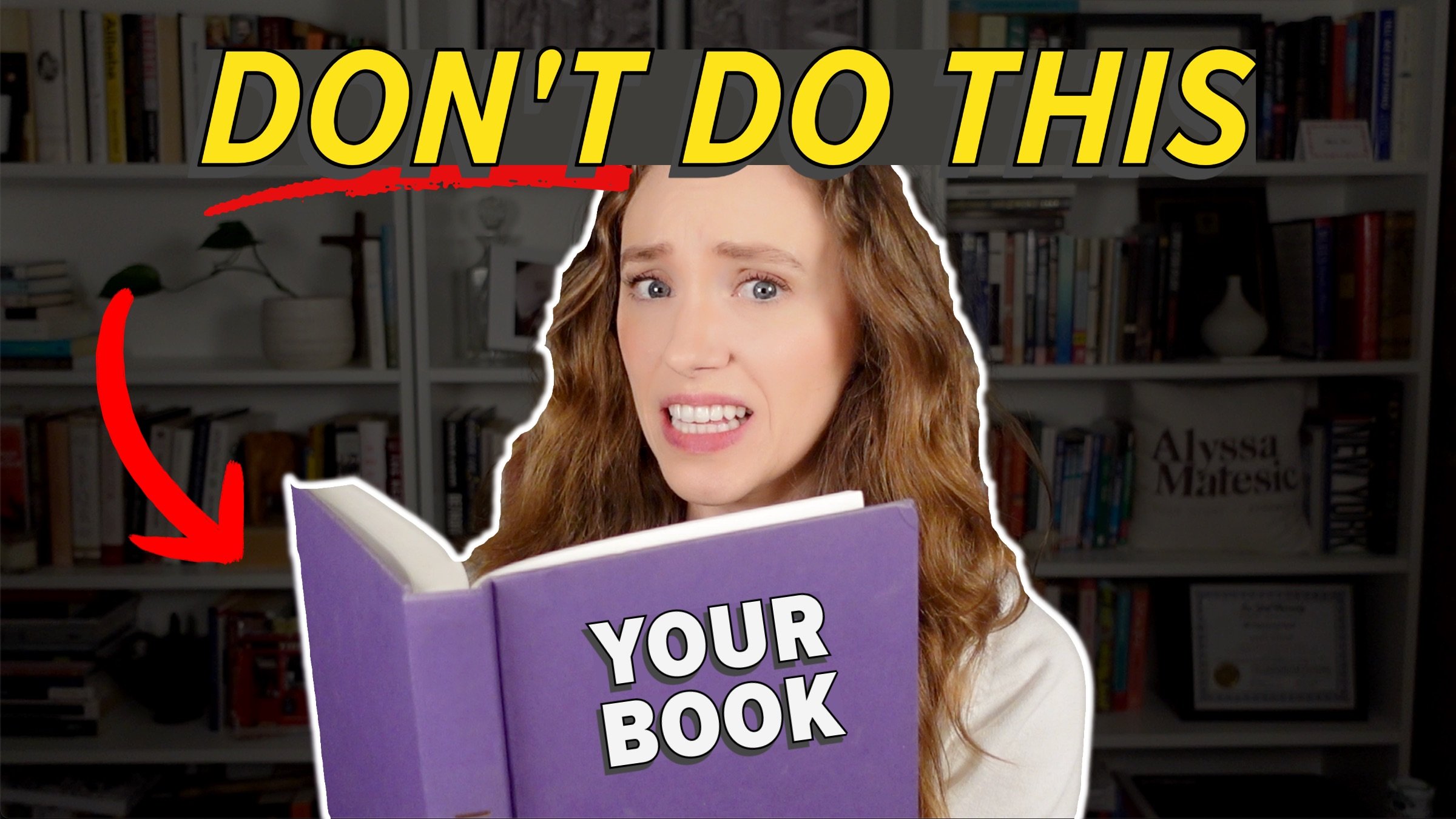Wrote a Book? Now Stop Worrying About These Things
HIT PLAY OR READ THE POST BELOW:
As a structural and developmental book editor, I’m one of the first people to lay eyes on a novel after my client (the writer) has completed their first full draft. I love this stage of the novel writing process as everything is finally down on the page, ready to be shaped and refined.
If you’re reading this and able to say, “I wrote a book,” I have to give you major props and a huge shout out! I truly believe finishing a novel is one of the most difficult accomplishments out there and you should be incredibly proud. I’ve noticed that writers at this stage often ask the same questions and have similar anxieties and worries about their first drafts.
I’m going to go over five things you shouldn’t worry about, discussing why you shouldn’t obsess over them and where you could shift that focus instead. Thus, when you do start the editing process for your book, it will be with fresh eyes and a productive outlook.
1. Don’t Fuss Over the Title
To begin, I intentionally want to start with this controversial opinion: you shouldn’t worry about your book’s title, at least not on the first draft. Of course, the title is one of the most important elements of your novel, so you might be wondering why I’m saying it doesn’t matter.
To clarify: the title of your novel does matter. However, it doesn’t matter right now.
When I worked at one of the Big Five publishing houses, there were cases where a novel was near completion and ready to be printed, but the editor, agent, and author would still be tweaking the title. That is because the title’s primary purpose is to be displayed on the packaging of your novel—aka the cover. So, at the end of the first draft, worrying about your novel’s packaging is not vital. You should instead be primarily thinking about what’s in between the covers.
Think about it this way: you have to bake a cake before you can ice it. In this analogy, your manuscript is the cake and the title is the icing.
If you publish with a traditional publishing house, you will have a full editorial and marketing team that will help you nail the perfect title that’ll draw readers to your book. If you’re self-publishing, a great idea for finding the best title could be to take a quick poll of different titles with a trusted group of beta readers. Regardless of the method you take, finding the perfect title takes time, energy, and a whole village. It’s not something that should make you toss and turn at night, at least at this early stage of your novel.
2. Think Lightly on the Genre
Another element I see writers get really stressed over is genre. For some, the genre is obvious from the inception of their novel—which is excellent! But for many, their novel’s specific genre is not obvious from the start. You might know that your novel is in the suspense category, but is it a psychological thriller or espionage or a gritty crime novel?
There are three main reasons why you shouldn’t worry too much about classifying your novel at its first draft stage. The first is that, similar to the title, the genre is an external part of your novel that will be used for marketing but isn’t vital for constructing the story.
The second reason is that when you deliberately prescribe a genre, you could inadvertently lean on tropes or patterns that are found in stories of the same genre. This prevents your story from reaching its peak, unique potential.
The third reason is that literary agents and editors at publishing houses often like it when a book goes beyond a single genre. After all, genres like “vampire romance” could not have been created and made popular without a first writer fearlessly diving into their unique idea.
In general, it’s a good idea to have a sense of the broad category your novel falls into, such as suspense or historical fiction. But beyond that, there’s no need to fret over the specific genre at the beginning of your writing journey.
The one caveat I have for this point is that you will likely be asked to identify the genre of your novel at some point, whether it’s in a query letter being submitted to a literary agent or when listing the category on the self-publication platform you’re using. However, that will come at the middle to end of your publishing journey; for now, genre can wait.
3. Don’t Get Attached to Characters’ Names
The third element to stop worrying about is the names of your characters. Your characters’ names may be deeply meaningful to you, and you may have spent hours researching and thinking of them, but the truth is your reader doesn’t really care.
Specifically, if your protagonist is named something conventional like Alex or Adam, a reader will immediately accept it and not think about it twice—changing Alex to Peter later on will make little difference to them. The main person affected by changing a character’s name will be you, the writer.
My rule of thumb regarding names is that it’s best to vary them as much as possible. Try not to have multiple character names that are two syllables and begin with the letter K, for example. This becomes especially important if you have a novel with a very large cast of characters. It's just easier on the brain to keep track of different characters if they all sound different. Other than that, there’s just no need to overthink it too much
4. Ignore Formatting for Now
When you were writing your novel, you likely adopted certain formatting techniques, whether it was the way you numbered each chapter or separated the sections. I’ve worked with writers who got very hung up on these formatting elements and I get it—I also love to perfect details.
But the fact of the matter is, there are many different ways to format your novel and they're all equally valid. Some want to number their chapters, some want to name them, and some just want to list the POV character in the heading. Whatever you defaulted to during the writing process is likely what you’re going to stick with, as it’s what’s most natural for you.
Additionally, if you pursue the traditional publishing path, the production team will step in to help format the pages in a clean and appealing manner. So right now, don’t think too hard about whether to use a tilde or a line break to separate sections.
5. Stop Thinking About Readers’ Reactions
This is a crucial element to not worry over as you finish your first draft: your readers’ potential reactions. I wanted to end on a slightly different element, as it doesn’t relate to how you composed your novel but rather your mindset at this important junction of your book.
Up until this point, it’s likely that your novel has only had a precious handful of readers. However, many writers write in order to publish—which means they want to put their book into as many people’s hands as possible. It can be incredibly nerve-wracking to share your work after all the hours you’ve put into creating a compelling story.
However, it is important to shift your mindset from being worried about what readers will think to embracing any and all feedback you receive. This is the moment to tell others, “I wrote a book,” and to receive all the cheers and congratulations and constructive feedback they give back. Now, these feelings aren’t mutually exclusive, and feeling both anxious and excited to share your book is the norm for many.
The key is to not let the anxiety overwhelm you, preventing you from sharing your novel with others. The worst thing that you can do for yourself as you move forward with revising and refining your novel is to isolate it.
Feedback will be absolutely critical, whether you're working with a group of trusted beta readers or a professional editor. You need to be willing to listen to the good and the bad, as they will provide a new perspective on your story. Some elements of your novel that seem obvious to you might be confusing to the readers, and potentially a reader can notice something new and blatant in your text that you didn’t even know yourself.
By accepting this feedback, you can take your first draft and craft it into a well-developed and strengthened second draft—as long as you are willing to take the plunge and share your work.
These are the top five things you should stop worrying about now that you’ve finished your novel!
Take the time to say to yourself, “I wrote a book.” You should savor that statement, as it’s a great feat to accomplish! Hopefully, seeing these tips and comments helped you get out of your head and let go of any minute details or concerns that have arisen during the writing process.
As you start the editing process for a book, you should look at the forest rather than its individual trees; you should look at the big picture aspects of your story, such as building suspense or deepening character relationships, rather than the small technical details. After all, those issues tend to resolve themselves naturally during the editing process.
Best of luck with your novel, and happy editing!






